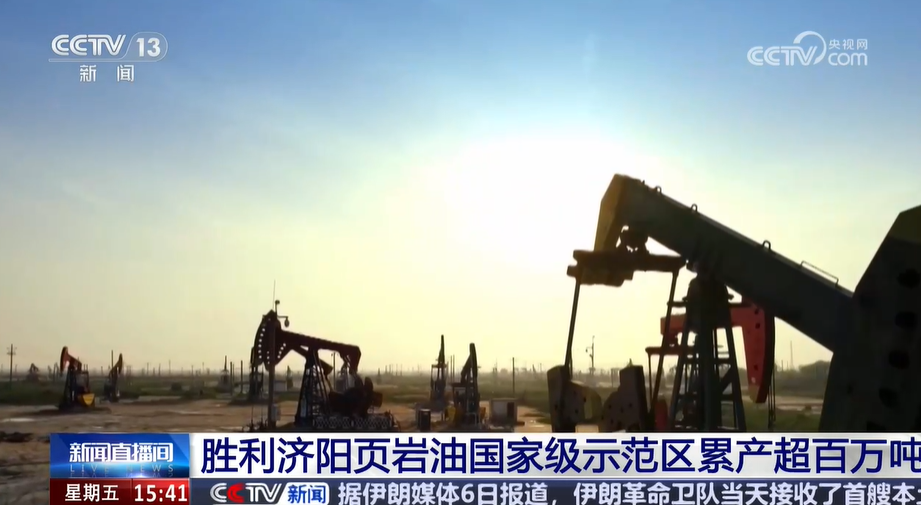CCTV News: Antarctic Qinling Station is the first perennial scientific research station built in my country in the new era. February 7 is the first anniversary of the opening of Qinling Station. How is the current construction progress of this latest inspection station? Let's go and see what's going on there together.
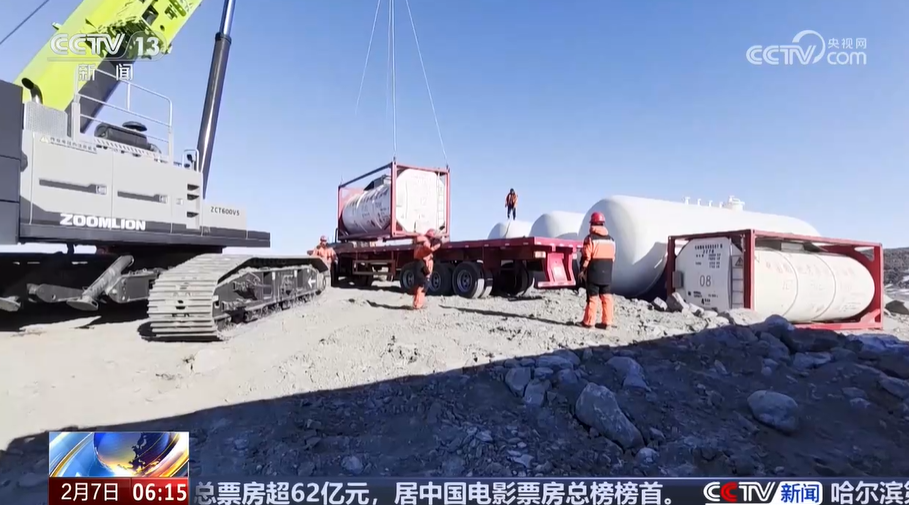
At present, China's 41st Antarctic expedition team has efficiently completed all unloading tasks, unloading a total of 368 pieces with a total weight of about 5,960 tons, providing solid material support for the construction of supporting facilities and equipment at Qinling Station. During the construction process, the team members adopted the model of unloading and construction work interspersed, which effectively improved work efficiency and saved construction periods.
As of February 7, the assembly of key supporting equipment such as new energy fans, photovoltaics, hydrogen energy systems, communication platforms, satellite antennas, and seawater pump stations has been successfully completed on site.
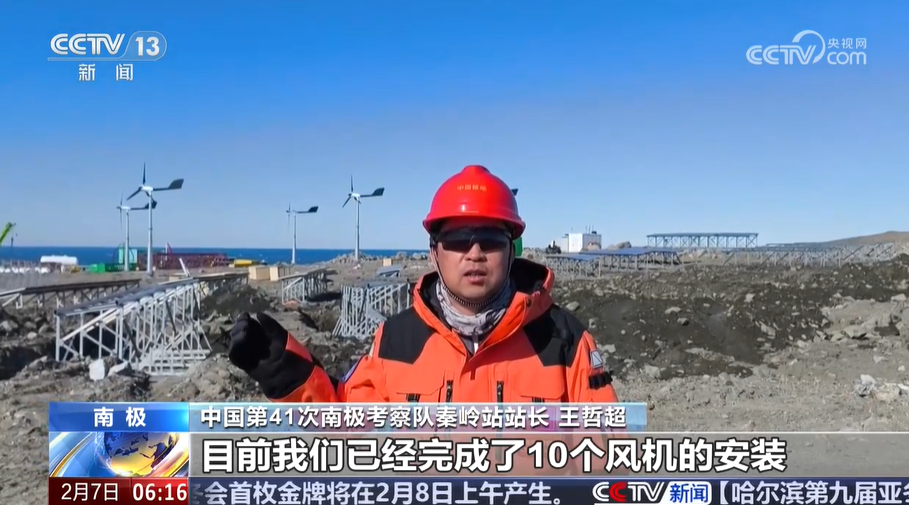
Wang Zhechao, the stationmaster of the Qinling Station of China's 41st Antarctic Expedition Team, introduced that 10 fans have been installed, and photovoltaic brackets and photovoltaic panels are being installed.
At Qinling Station, many energy equipment has been specially designed to adapt to the extreme climate and special geographical location here.
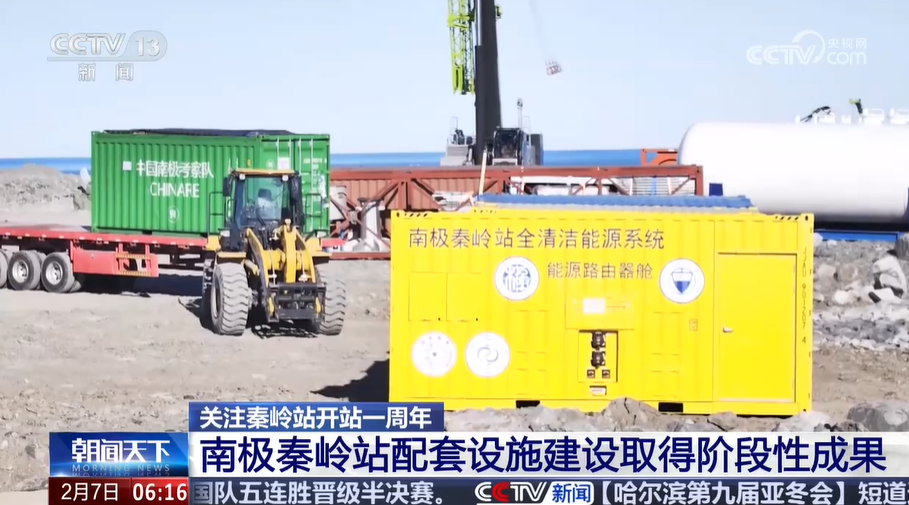
Qinling Station in Antarctica has pioneered a multi-energy complementary system for wind energy, solar energy, hydrogen energy and diesel power generation, achieving energy conservation and emission reduction. Among them, the application of hydrogen energy has set a precedent for the use of clean energy in Antarctica in my country, and further implemented the "green investigation" Chinese Antarctic concept with actions. At present, the hydrogen energy system has been fully installed.
Wang Bin, a member of the Qinling Station of the 41st Antarctic Expedition Team in China, said that in the extreme night environment, the station can provide 30 kilowatts of electricity for at least 14 consecutive days.
In the future, the inspection team members will also carry out the construction tasks of indoor supporting equipment and scientific research facilities at Qinling Station, and complete the installation and debugging of relevant systems as soon as possible.
The Qinling Station's daily research water will be desalinated.
The Qinling Station is surrounded by the sea on all sides. Due to its special geographical location, all living and scientific research water here must be desalinated to meet the needs. At present, multiple sets of seawater desalination equipment are being installed from outdoors to indoors, striving to achieve seawater desalination as soon as possible.
At present, the water intake system and supporting power system of Qinling Station have been installed. 80% of the overall projects such as seawater heating, seawater pretreatment, water production purification systems, and disinfection systems have been completed.
Shao Tianbao, head of the Qinling Station’s seawater desalination equipment R&D project, introduced that the remaining workload is expected to be completed in about 35 days.
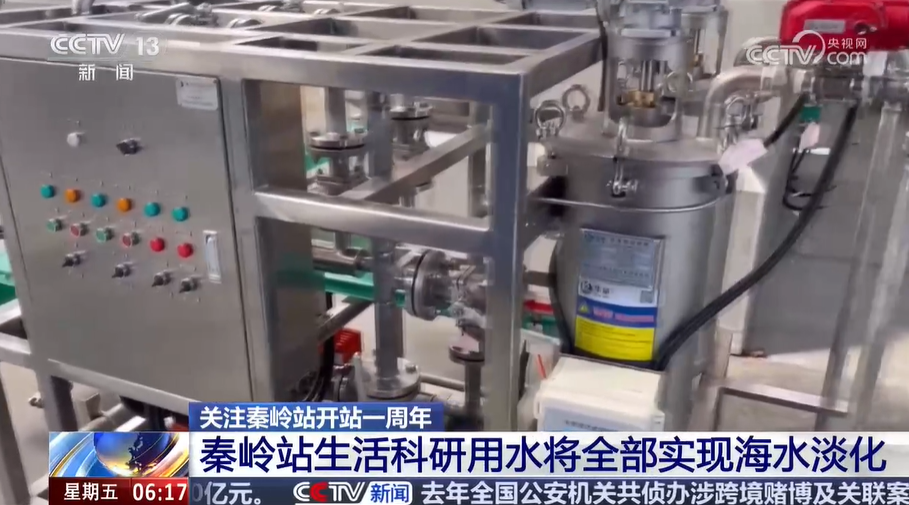
In order to ensure the uninterrupted water use needs of Qinling Station, a total of two desalination water systems are equipped on site, one as a backup and the other as a normal operation, and 20 tons of fresh water can be produced in 10 hours. In addition, water storage containers can provide Qinling Station with sufficient fresh water resources.
Whether the desalinated seawater quality can meet the drinking water needs is also concern. Shao Tianbao said that there is no need to worry about the quality of drinking water. The water quality is guaranteed and you can drink it with confidence.
Qinling Station Chief Designer: The safety of Qinling Station has been verified
The Antarctic Qinling Station is built on Enksburg Island in the Ross Sea area. This area is also one of the harshest areas in Antarctica's climate environment. So did Qinling Station pass the test of polar climate this year? Let’s take a look at the reporter’s exclusive interview with the chief designer of Qinling Station.
Duan Meng, chief designer of the Qinling Station in Antarctica, said that the Qinling Station has experienced an extreme climate test of low temperatures, strong winds, and extreme day and night for a whole year. From the scene, the main building is intact and the overall safety has been verified realistically.
The rocks on Enksburg Island are exposed. As one of the areas with the strongest descending winds in Antarctica, super strong, super dry and super cold offshore winds are prevalent, and there are often winds and snow. Duan Meng said that in view of the special climate here, the Qinling Station adopts an overhead design and takes into account the relationship between the long axis and the main wind direction. These are very effective in slowing down snow. At the same time, the flatness and adhesion of the composite metal materials used in the building meet the expected requirements.
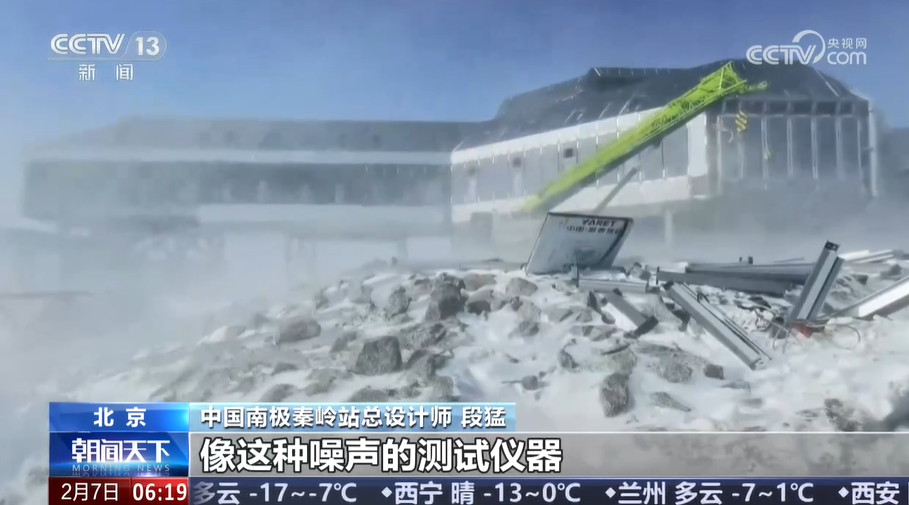
Duan Meng, chief designer of the Qinling Station in Antarctica, introduced that the next challenge is mainly during the wintering period, because after the entire station enters a full operating state, the differences between the environment inside and outside are greater, including temperature, airtightness, and noise inside and outside, which are all challenges. This time the designer also brought the noise testing instrument to the site to observe and test its wind noise, and obtained some data on building performance.
Duan Meng said that after another complete annual working condition inspection, the supporting construction of the inspection station is expected to be completed. After completion, the Qinling Station will become a key scientific platform for scientists and expedition members from all over the world in the Ross Sea region, and will shoulder the important scientific mission of carrying out research on global climate change for the international community.


